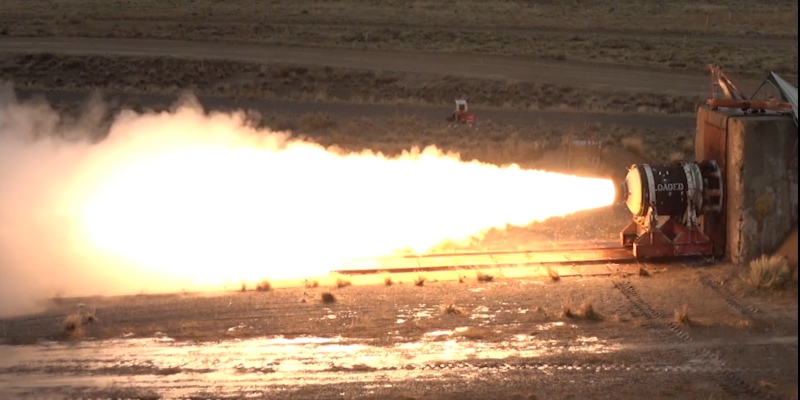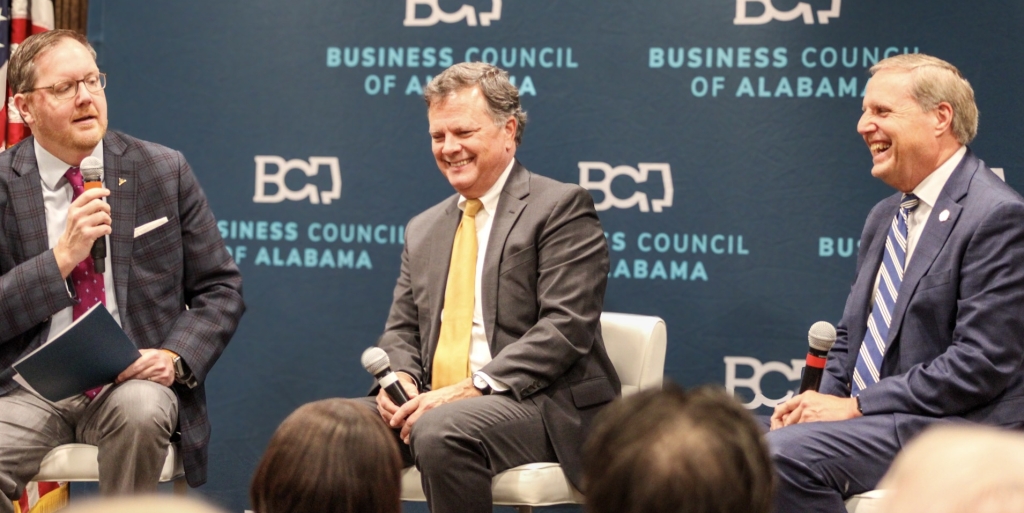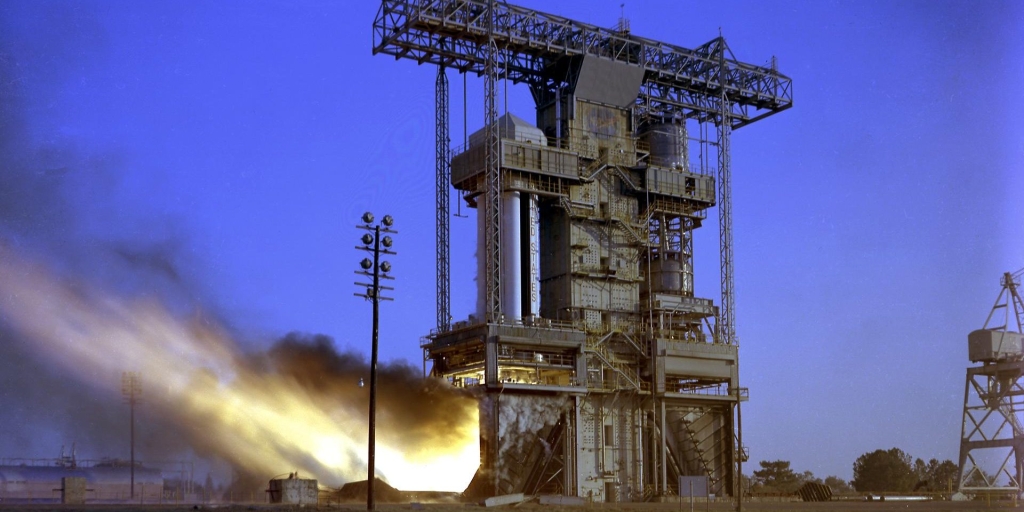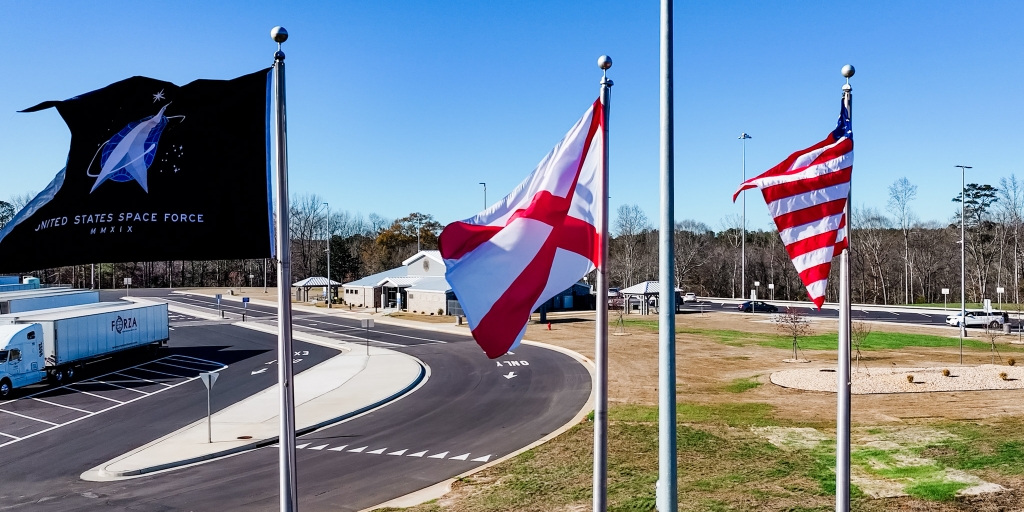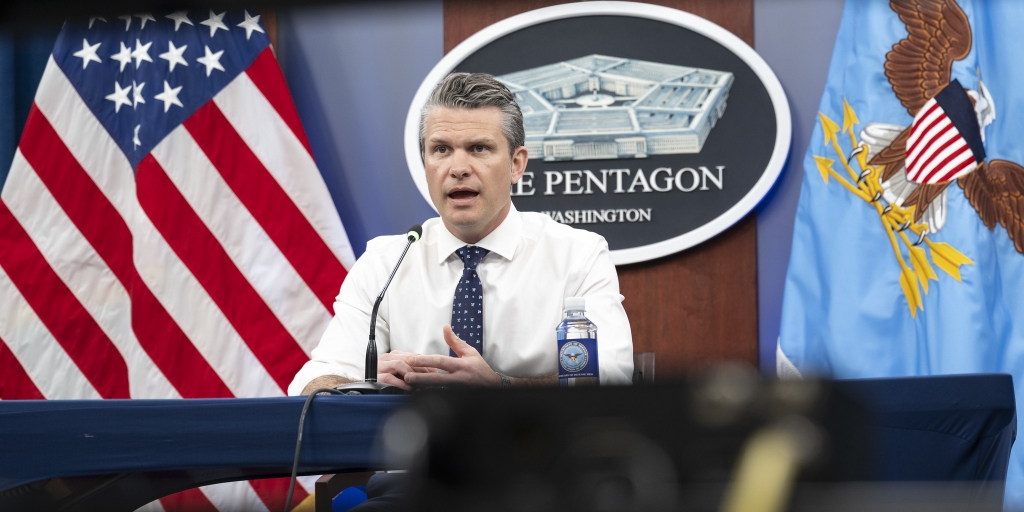Aerojet Rocketdyne on Tuesday announced that the company recently completed a successful static-fire test of an advanced large solid rocket motor, called the Missile Components Advanced Technologies Demonstration Motor (MCAT Demo), under contract to the Air Force Research Laboratory (AFRL).
According to a release, Aerojet Rocketdyne’s MCAT Demo large solid rocket motor design incorporates numerous advanced technologies and materials. The program’s primary goal is to develop technologies to increase propulsion performance and lower manufacturing and operational costs for future applications. In order to meet the goals, the MCAT Demo design consists of a state-of-the-art graphite composite case, an affordable advanced nozzle and high-energy, long-life solid propellant.
“Aerojet Rocketdyne has produced large solid rocket motors for critical defense programs for more than 60 years, to include powering every U.S. Air Force ICBM ever fielded,” Eileen Drake, Aerojet Rocketdyne CEO and president, said in a statement.
“Today we are building a family of modern large solid rocket motors with improved performance at lower costs; the research and development efforts for the Missile Components Advanced Technologies program are crucial to our nation’s strategic strike capability,” she continued.
Aerojet Rocketdyne has recently kickstarted major operations in Huntsville, which are continuing to expand. This has included moving the company’s production of large solid rocket motor casings to the Rocket City in December 2019.
AFRL facilitated the MCAT Demo testing at the Utah Test and Training Range to demonstrate the performance of the Aerojet Rocketdyne rocket motor. The MCAT Demo motor firing is the first test in a series of strategic-sized motor demonstrations planned in the near future.
“The successful MCAT Demo enables future Air Force ICBMs to deliver higher performance while reducing cost,” stated Jason Mossman, chief of the Motors Branch at AFRL, Edwards Air Force Base. “We are committed to providing world-class technology for Air Force Nuclear Deterrence Operations, and we are very pleased with the outcome of the MCAT Demo.”
During the static firing, the 52-in. diameter MCAT Demo motor fired successfully. Initial post-test inspection indicates that all components functioned as designed. AFRL provided technical and managerial oversight of the MCAT contract.
“ICBMs must be ready to fly on a moment’s notice in harsh environments and at speeds greater than Mach 20,” concluded Mossman. “AFRL’s program focuses on long-life components and options for low cost ICBM maintenance.”
Sean Ross is the editor of Yellowhammer News. You can follow him on Twitter @sean_yhn




